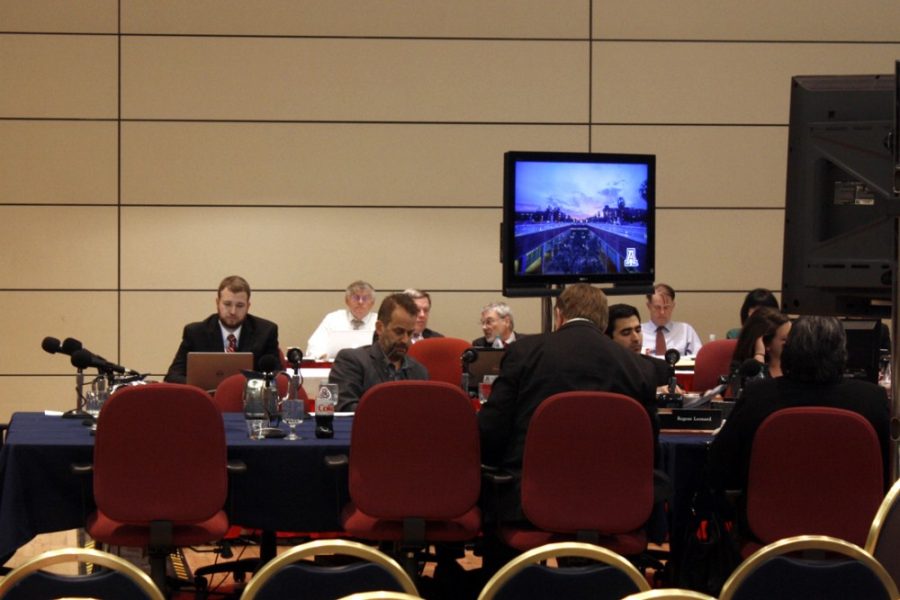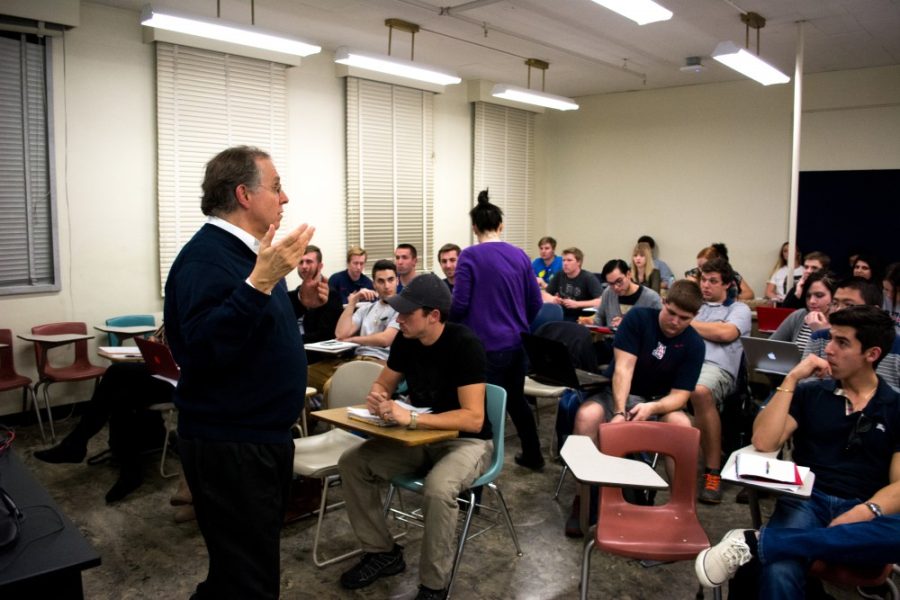The Arizona Board of Regents meetings concluded with the approval of several motions after recaps of reports presented to them by University of Arizona faculty and students throughout the week.
Regent Treasurer Rick Myer called for support of four motions that were unanimously approved by the board:
- 1. A new action should hold the line on enterprise cuts, creating a limit of no more than 10 percent of total university enterprise support from the state.
- 2. The cuts should be given in a lump sum to the enterprise and managed by the board.
- 3. Budget reductions must be coupled with reforms presented in the board’s legislative agenda.
- 4. Triggers should be included so that university funding increases as soon as the state’s budget position improves.
Myer said he wants to “prevent further erosion of the universities’ share of state General Fund support.”
The board of regents also unanimously approved Senate Bill 1076.
The bill appropriates $200,000 into the student loan program for math, science and special education. Upon graduation, students who received loans will be contracted to teach in areas where teachers are needed.
In addition, all consented agenda items were unanimously approved including the 2015-2016 UA Academic Strategic Plan.
Academic Student Affair Committee
Regent LuAnn Leonard gave the Academic Student Affair Committee Report, which primarily focused on academic elements of UA’s operational and financial programs.
She complimented Melissa Vito, vice president for student affairs, and Angela Baldasare, assistant provost of institutional research, for their presentations of new student learning programs such as Civitas and Active Learning.
Civitas gives the UA capacity to integrate data on all students in order to target their needs, Leonard said. The Active Learning program aims to improve teaching and learning by using classroom time to work on projects and group activities.
UA Student Leaders
Three leaders of the student body spoke to regents about school pride, needs of graduate students and students of UA South.
ASUA President Issac Ortega said, “We want to build up and add value to not only our city but our state as well.”
The Graduate Professional Student Council reported the findings of surveys over the last few years regarding areas of concern for graduate students.
Zachary Brooks, president of GPSC, said, “Our philosophy is data driven accuracy,” and, “we are the best in the country when it comes to collecting data.”
For the past 25 years, GPSC has used surveys to determine what graduate professional students need in five categories: fees, tuition, childcare, healthcare and standard of living.
According to Brooks, surveys show most students are aware of how the effects of university fees, finances, childcare and mental and physical health can slow down degree completion. With a major concern among graduate students being the amount of compensation received for their work, the prospect of impeding completion of graduate degrees is serious.
ASUAS President Semiramies Hastain spoke on behalf of the UA South student body, which, according to Hastain, is mostly comprised of students with full-time responsibilities, such as families or jobs.
Hastain believes that as a result of these students’ commitments beyond the university, students are concerned with fees associated with taking online classes. In regards to finalizing the board’s decision on new iCourses, Hastain stated, “If you want the support of UA South, you need to make us a part of the conversation.”
Legislative Affairs Committee
The report from Myer addressed the concern for the proposed budget cut to UA, Arizona State University and Northern Arizona University, proposing new information about the potential repercussions and how to move forward.
Myer said the cuts are “absolutely [un]acceptable,” but added that influential members of the state’s legislation are looking at cuts greater than that proposed by Gov. Ducey.









